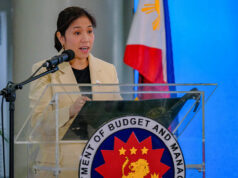FEF flags retention of foreign equity provisions
By Camille A. Aguinaldo, Reporter
THE Foundation for Economic Freedom (FEF) on Monday raised concerns over the provisions of the draft Federal Constitution on foreign ownership restrictions, saying that it still retained the “out of step and out of sync” limitations under the current Charter.
The draft Federal Constitution proposed by the Consultative Committee (ConCom) has retained the 60%-40% ownership of corporations, public utilities, educational institutions, and land as well as the 100% Filipino ownership of mass media. It also allowed Filipinos or corporations at least 70% Filipino-owned to engage in the advertising industry.
The federal and regional governments may also undertake a joint venture in the exploration, development, and utilization of natural resources with Filipino citizens or entities at least 60% Filipino-owned.
It also provided provisions allowing Congress to change the ownership percentage of these corporations through legislation.
The draft Federal Constitution also gave preference to Filipinos “in the grant of rights, privileges, and concessions covering the national economy and patrimony.”
In a statement, the organization called for the lifting of the foreign equity restrictions in the draft Federal Constitution as a “decisive economic liberalization (move) to promote domestic and foreign investments and to create jobs.”
“The restrictive and protectionist constitutional provisions which the draft proposes to perpetuate should be lifted immediately, even as the other impacts of the federal form of government are subjected to deeper and full study,” the group said.
The organization pointed out that the same restrictions in the 1987 Constitution have been responsible for the country’s “inferior growth relative to the economic aspirations” of the country compared to its neighbors.
“These have sent strong signals to foreign investors that they are not welcome to invest in the Philippines to create jobs, transfer technology, provide healthy competition, and improve the lives of Filipinos,” it stated.
It also said the provisions did not label the Philippines as a “modernizing country embracing the future” but as a “backward-looking, anti-modernist, and protectionist” country.
Even if the draft Federal Constitution has given Congress the authority to decide on the capital requirements, the FEF noted that the provisions still retained the restrictions in the current Charter and only relied on the change to happen “if and when Congress sees fit.”
FEF then proposed instead for Congress to regulate the entry of foreign investments. It also mentioned that this has been the practice of other countries.
“We propose that the default provisions not be restrictions but allow Congress to regulate the entry of foreign investments as conditions, including public welfare and national interest, warrant,” it said.
“Moreover, by removing these restrictions in the fundamental law of the land, we are signaling that change has happened and we are open to investment, foreign or local,” it added.
It also questioned the provisions mandating preference to Filipinos in the “grant of rights, privileges and concessions covering the national economy and patrimony.” It argued that phrase may be interpreted as keeping out foreigners to promote protectionism and monopoly.



